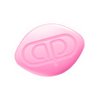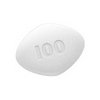INDICATIONS
Lasix is used for treating high blood pressure or water retention (swelling) associated with congestive heart failure, liver disease, or kidney disease. Lasix is a loop diuretic. Loop diuretics make the kidneys eliminate larger amounts of electrolytes (especially sodium and potassium salts) and water than normal (diuretic effect). Loop diuretics are useful for treating many conditions in which salt and water retention (eg, edema, swelling) are a problem.
INSTRUCTIONS
Use Lasix as directed by your doctor.
- Take Lasix by mouth with or without food.
- If you take cholestyramine, colestipol, or sucralfate, ask your doctor or pharmacist how to take them with Lasix.
- Lasix may increase the amount of urine or cause you to urinate more often when you first start taking it. To keep this from disturbing your sleep, try to take your dose before 6 pm.
- If you miss a dose of Lasix, take it as soon as possible. If it is almost time for your next dose, skip the missed dose and go back to your regular dosing schedule. Do not take 2 doses at once.
Ask your health care provider any questions you may have about how to use Lasix.
STORAGE
Store Lasix at room temperature, between 68 and 77 degrees F (20 and 25 degrees C). Store away from heat and moisture in a tight, light-resistant container. Exposure to light may cause a slight discoloration. Do not take discolored tablets. Do not store in the bathroom. Keep Lasix out of the reach of children and away from pets.
MORE INFO:
Active Ingredient: Furosemide.






